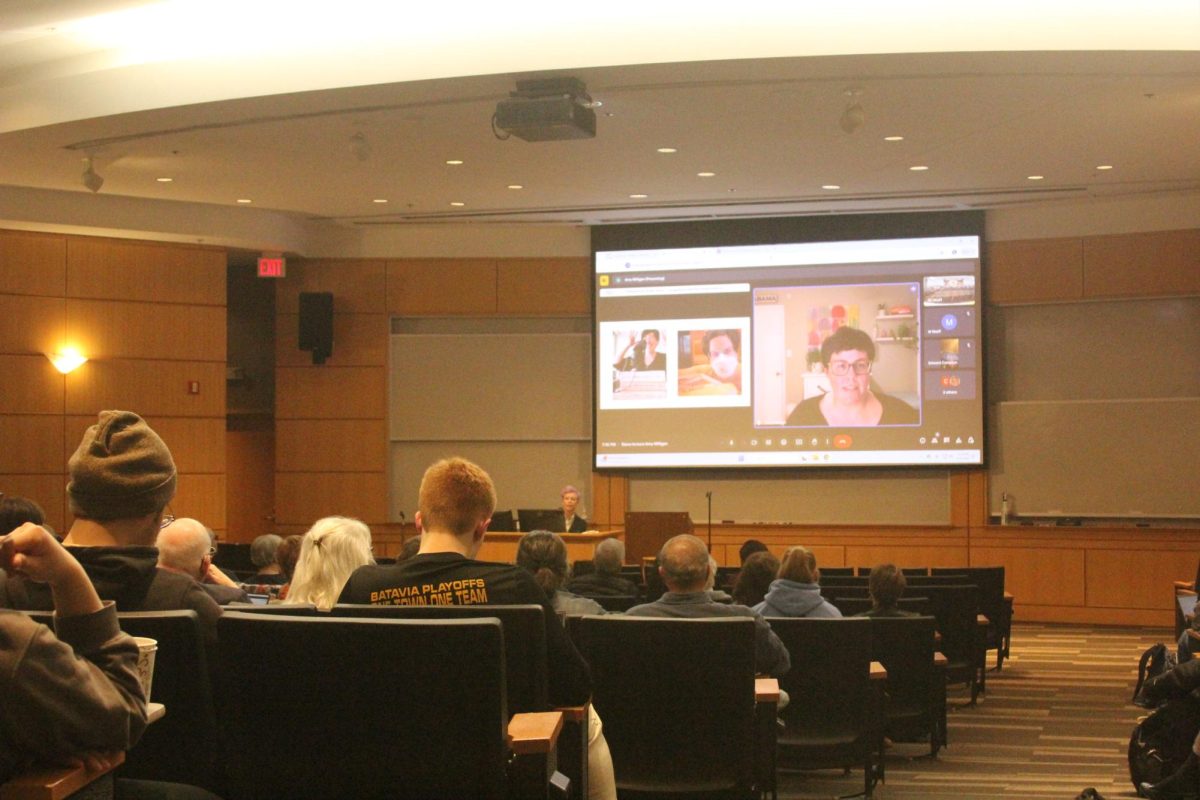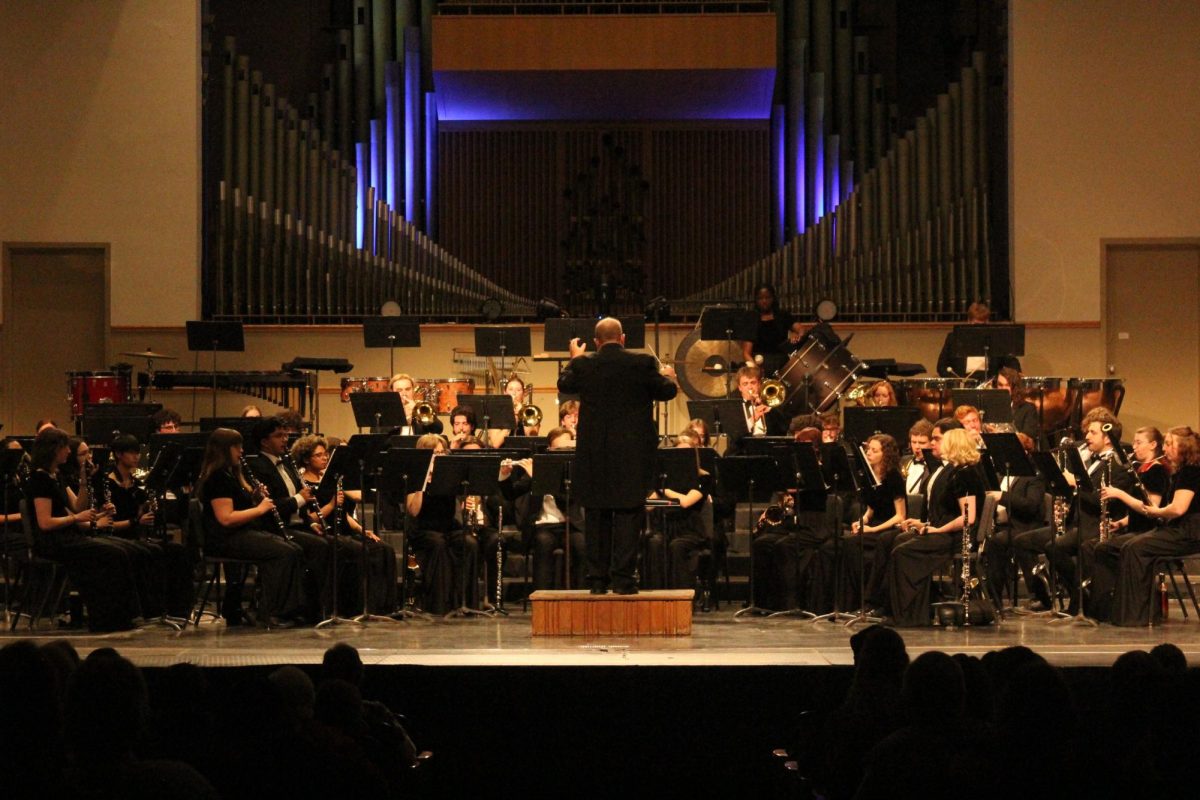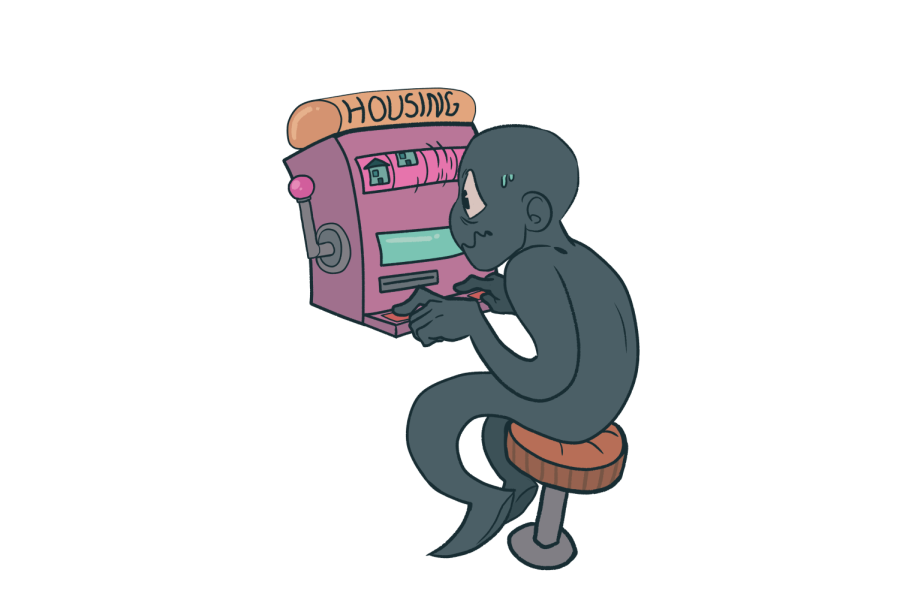Windows of opportunity: Housing on college campuses
April 9, 2022
As the academic year comes to an end, students’ to-do lists continue to grow. Finding roommates, comparing housing options and for some, applying to special programs or activities can pile up on top of academic and extracurricular work.
Augustana offers three first-year residential halls, two for second-years and more than six Transitional Living Areas (TLA) for third-year students or those who are 21 years or older. Additionally, there are three different programs for specialty housing, the Healthy Living floor, the International House and the Augustana Leaders in Vocational Exploration program (ALIVE).
Students are able to find a sense of belonging through these programs, as they are grouped with others whose lifestyle and beliefs are similar to theirs. Each specialty housing is advertised to different years.
The Healthy Living floor is directed to incoming students and there is no limit on the number of participants. Chris Beyer, the director of residential life, said that the Healthy Living floor “is meant to be what other colleges would call a substance free floor.”
According to the Augustana website, the program is advertised for students who are “committed to a lifestyle free of drinking, smoking or using illegal drugs.” I think some students come to college expecting to socialize that way and engage in those sorts of activities, and some students don’t and may feel a little intimidated by that,” Beyer said.
The Healthy Living floor gets a lot more engagement than students may expect. “In some years, it’s between 35 and 40 percent of the first year class,” Beyer said. “It’s a flexible program that will grow or shrink just based on demand.”
ALIVE is a new program available only for rising sophomores interested in vocational exploration.
“It’s a fairly competitive application, students have to write an essay. If they’re selected for the program, the housing scholarship comes along with it because these students will live together in Swanson, but they receive a scholarship that basically offsets the price difference between Swanson and Erickson,” Beyer said.
Keri Bass, assistant director of vocational exploration and CORE career coach helps with the ALIVE application process and is a mentor for the fellows. She explains that the fellowship doesn’t reach many students compared to other programs.
“It is a commitment for those students on a weekly basis,” Bass said. “Students need to do weekly work and attend Sunday night gatherings where they spend a few hours delving into readings that the mentors assigned that week.” While this can be rewarding for some, it can cause added stress for others.
“Because of its [commitment] I don’t think it’s ever going to get 500 students that apply for it,” Bass said. “It’s going to get students that are first and foremost interested in having and devoting time for deeper conversations around vocation from a multi-faith and non-faith perspective.”
The International House is also advertised to sophomores. It requires an application that allows students access to a formal living and learning community. Students interested in the International House will all live together, but the program is capped at 10 people.
For Beyer, the International House is “an informal chance for [students] to share with each other their various cultures.” This opportunity allows them to be surrounded by a multicultural community where they can explore and share their own experiences.
Along with these existing programs, Michelle Mason, the assistant director of residential life, discussed a new program that may come to fruition in the near future.
“We are hoping to introduce an all gender community for first and second year students,” Mason said. “I’m really excited about that as it is something we’ve been working on for a while. I think that would be a good addition that would definitely help in ways we aren’t fulfilling currently.”
Whether it be for a special program or regular housing, the actual registration process is similar for each grade, but takes place at different times. The major difference between grades is that TLAs have two selection days, one for four people housing groups and one for everyone else.
The person in the roommate group with the earliest registration time typically selects where the group wants to live. This year, housing selection will take place on April 18.
For transfer students and those who require medical accommodations, housing varies on a case-by-case basis. Students can request medical accommodations when filling out the housing application and are placed accordingly.
Junior Maggie Lukas has had medical accommodations since her first year at Augie. After her first time filling out the accommodations form, Mason started reaching out to her with housing options, making the process easier.
“Working with Mason has been really easy; I tell her which options I would prefer over others, and then she comes back to me, usually saying that I can live in my first choice,” Lukas said.
Beyer said that the coordinators try to work with transfer students to be placed based off of when they paid their tuition deposit.
For those transferring to Augustana without a distinct friend group,“we [residential life] offer them a space over the summer, similar to how we assign housing for incoming first year students,” Beyer said.
Senior Mauricio Cruz, who transferred as a junior, said that the housing experience was generally good, as he got to live with his friends and soccer teammates despite their age and year differences. “I’ve met a lot of people from my floor. Even though they are all sophomores, age hasn’t been a huge factor,” Cruz said.
As for senior housing, Augustana takes more of a hands-off approach. The only time Residential Life gets involved with housing for seniors is in the rare case that a student’s pre-planned housing falls through or a senior transfer student comes in late, so the amount of seniors that live on campus is typically small.
Seniors who do want to live on campus can contact facilities to see which on-campus options will be available. This year the rising junior class is very small, so there are spaces for seniors to live in. “I would definitely recommend [seniors] reach out to facilities services to see what [spaces] are going to be available,” Mason said.
For many students, this entire process can be confusing and sometimes scary. With more and more people coming into college during a pandemic, roommate selection has become increasingly challenging due to the lack of regular interaction. Mason has found trends in housing arising after the COVID-19 pandemic in regards to the sense of community in residence halls.
“We’ve seen kind of a ripple effect from just having less students on campus, but also less activities on campus. We’ve seen it be a lot more common for students to not have roommates or not know people to room with. So we’ve had some roommate mixers that we’ve been doing to help,” Mason said.
Mason closed with a hopeful thought in regards to housing and roommate selection during COVID-19, “I am excited that we’ve had some different restrictions on campus be lifted, and that we’re having more of an ability to have community and safe ways just to help with students to develop relationships and find good connections for roommates.”
With housing selection coming up soon, students should keep their eye out for pertinent emails with information relevant to upcoming decisions. From specialty housing, COVID restrictions being lifted and accommodations, it is necessary to know the ins and outs of the ongoing changes of housing at Augustana.




































































































